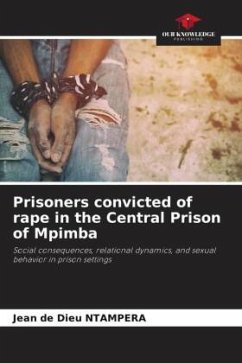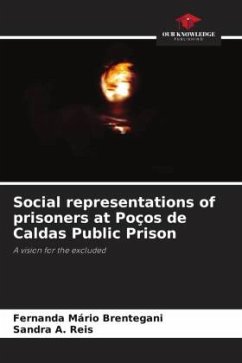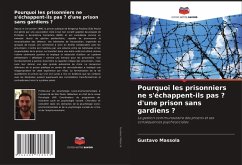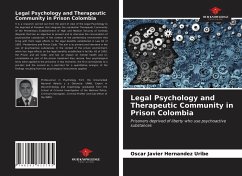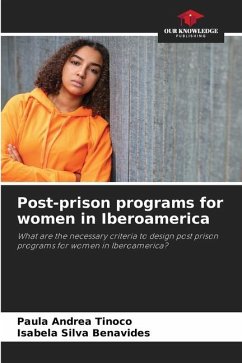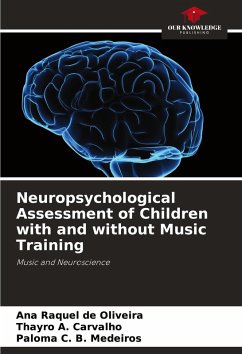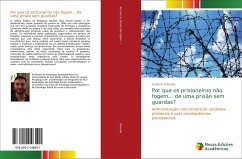
Why don't prisoners escape... from a prison without guards?
Community management of prisons and its psychosocial consequences
Versandkostenfrei!
Versandfertig in 6-10 Tagen
65,99 €
inkl. MwSt.

PAYBACK Punkte
33 °P sammeln!
Since the first of January 1996, the Bragança Paulista Public Prison (São Paulo) has been run by a non-profit civil association called Associação de Proteção e Assistência Carcerária (APAC) and has come to be seen as a successful example of prison administration, capable of promoting the re-socialization of prisoners. The association's volunteers, organized into working groups, began to live closely with the prisoners. Order was maintained by an alliance between volunteers and prison leaders. Transfer to another unit was used as the ultimate punitive ceremony and implied the need for a...
Since the first of January 1996, the Bragança Paulista Public Prison (São Paulo) has been run by a non-profit civil association called Associação de Proteção e Assistência Carcerária (APAC) and has come to be seen as a successful example of prison administration, capable of promoting the re-socialization of prisoners. The association's volunteers, organized into working groups, began to live closely with the prisoners. Order was maintained by an alliance between volunteers and prison leaders. Transfer to another unit was used as the ultimate punitive ceremony and implied the need for a "failed" prison system to be used as a threat to prisoners. Its operation resulted in greater critical capacity for prisoners, but without greater autonomy of choice. The subsequent conversion of the public prison into a Resocialization Centre implied a re-appropriation of this experience by the state. The consequent formalization of daily prison life has made it clear that contacts with volunteerspreviously had transformative connotations, and thus contradicted the penal system.



